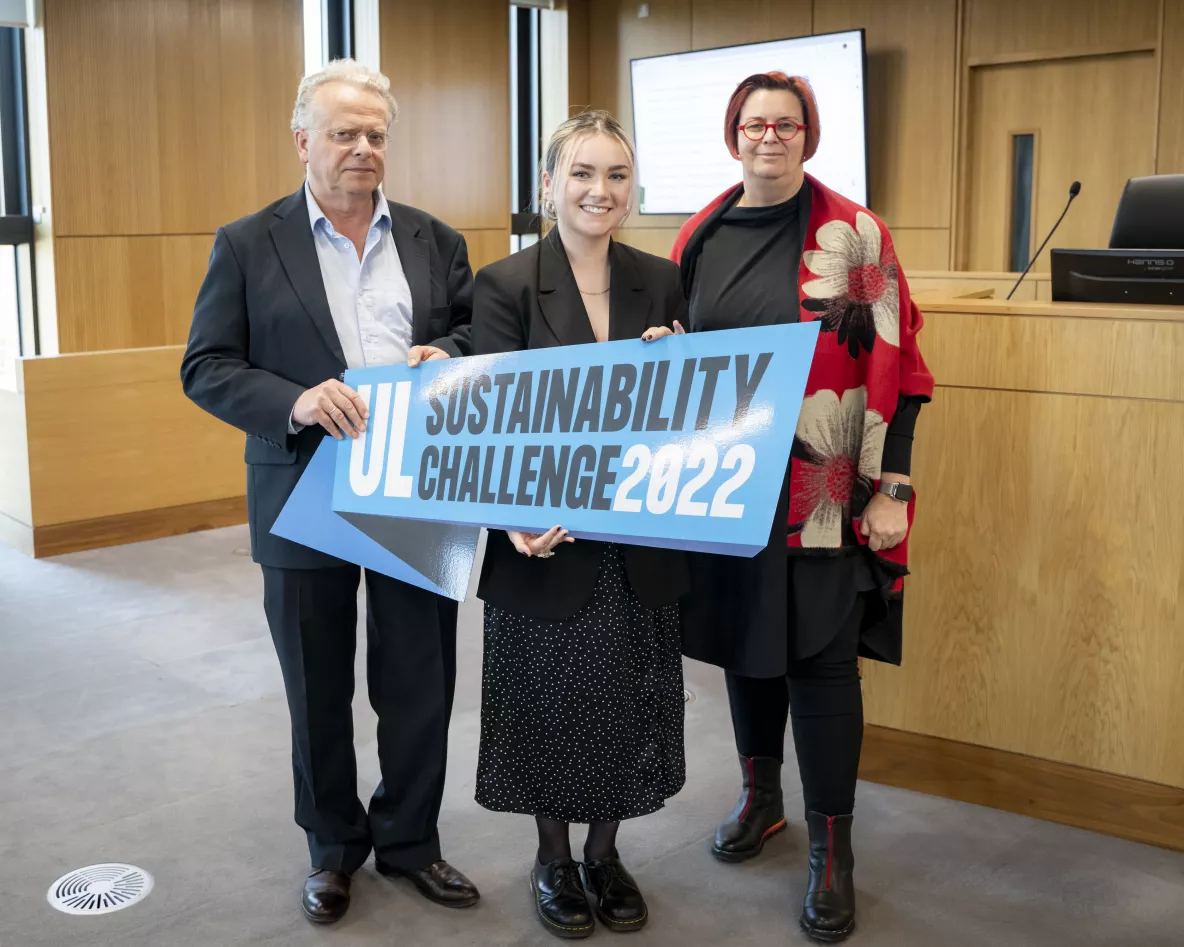
UL Sustainability Challenge – CARE
Earlier this year, we launched the UL Sustainability Challenge to encourage our students to develop research projects to tackle the Climate Crisis.
The competition was open to both undergraduate and postgraduate students, and offered up to €10,000 in funding to develop working pilot projects to show how their innovative ideas could be scaled up to make an impact on the biggest challenge of our time.
Having been overwhelmed with inventive entries, we have now announced the winners of the inaugural Sustainability Challenge, and are excited to showcase their ideas – and the research that they’ll be conducting over the coming months.
Clean, Accessible, Renewable & Energy Efficient Energy – Metal-Free Catalysts to the Rescue
The brainchild of Niamh Terranova (2nd year undergrad, Applied Physics) and Raju Lipin (2nd year PhD, Department of Chemistry), the CARE project aims to produce clean, sustainable and affordable hydrogen gas to address rising emissions and the ever-growing demand for more energy.
They hope to achieve this by replacing the expensive and scarce platinum catalysts currently used in hydrogen production with metal-free, environmentally-friendly alternatives that could reduce costs and waste.
Niamh and Raju are planning to collaborate with Mesoscale Chemical Systems Labs and University of Twente, Netherlands on their project.
Professor Norelee Kennedy, Vice President of Research at University of Limerick said: “The partnership between doctoral and undergraduate students Raju Lipin and Niamh Terranova demonstrates the opportunity to connect with research from the very beginning of the academic journey at UL.”
“By engaging with University of Twente the team are seeking to bring their theories to life and offer new knowledge to the clean energy challenge. Their global perspective to partnering in solving a grand challenge illustrates the great power of the connected and open research community.”
We spoke with Niamh to understand what winning the Sustainability Challenge meant to her, and what she and Raju hope to achieve:
Q: Congratulations on being a winner of the Sustainability Challenge. What does it mean to you to have your project chosen and funded?
N: Having my project chosen and funded feels like a dream!
Lipin and I began this project last summer with the UPSTaRT programme, which allows undergraduate students to take part in research in UL’s Bernal institute. Over the few months I spent with Lipin and the MACATAMO team I learned amazing things and discovered my passion for research. We worked hard on this project as it was something we both found be really intriguing.
When we saw this competition, we knew our project would be perfect.
Being chosen as a winner of this challenge makes me proud of all the hard work we put in and gives me so much more confidence in my own research abilities. I believe this research could have a real impact and I am so happy that we are being given the opportunity to see where this project leads.
Q: Why did you choose this particular project?
In day-to-day life we all know how important of an issue that Climate change is, with the Earth currently facing a major climate crisis.
As young people this issue is of importance to both Lipin and me. One of the keyways to tackle the World’s climate issues is via clean, accessible, and renewable energy (hence our project title “CARE”).
From a computational chemist and physicist’s perspectives, finding a catalyst that will allow for the quicker and easier manufacturing of clean energy sources could really change the world. Phosphorene is an intriguing material at the moment and is being studied for many of its remarkable properties.
With new papers and research being published on graphene every day it makes it an interesting topic, as we are at the forefront of the scientific community. With something we are so passionate about and interested in, this seemed like the perfect project for us.
Q: What do you hope to achieve over the coming months?
Over the coming months we hope to further investigate our catalyst and hopefully to go to Twente University to examine how our catalyst can be synthesized. We also hope to publish our research, creating a blueprint on how metal-free catalysts should be designed in the future.
Q: Do you have any advice for other students who want to become more engaged in climate action or sustainability research?
I would say just grab any opportunity you can. When I started this research, I never imagined I would be a winner of this project or the potential impact that this project may have.
As long as you have passion in your chosen subject, anything is possible. This is our planet and our future, as students it is time to have our voices heard and our ideas seen.
While research may seem small and insignificant at first, you never know where something may lead, unless you start!